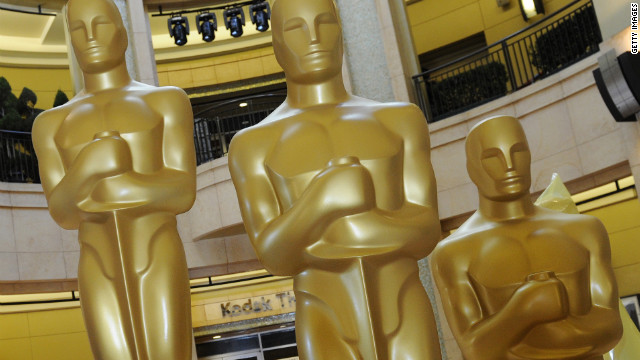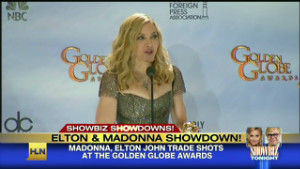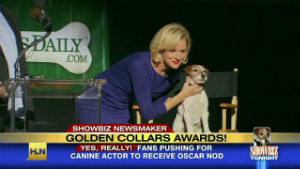
- About 16.8 million people tuned into the Golden Globes on Sunday
- The media was notably underwhelmed by the awards show
- Social media has amplified viewers' desires to watch awards shows live
(CNN) -- For an awards show that's not the Oscars, the 2012 Golden Globes attracted a good amount of attention.
About 16.8 million people -- a slight dip from last year's 17 million viewers -- tuned in to the event that elicited countless trending topics on Twitter, status updates on Facebook, inches in newspapers and articles online.
Yes, it's that time of year again when starlets show off their best assets in designer gowns, tiny statues are handed out and the world gets to critique who worked the red carpet. Awards season officially kicked off on television last Sunday night with the Golden Globes and the media was notably underwhelmed by the soiree while viewers seemed split on host Ricky Gervais' toned-down performance.
So why not just change the channel?
Awards shows are among the few glamorous Hollywood events that are open to the public, said Mary McNamara, a TV critic at the Los Angeles Times.
 Elton John vs. Madonna at Golden Globes
Elton John vs. Madonna at Golden Globes
 Award show goes to the dogs
Award show goes to the dogs
But it's not just about the glitz, the couture and the celebrity.
"When even reality TV is scripted, there's something refreshing about seeing something that could be unpredictable," said Daniel Manu, the site director of Television Without Pity. "You don't know what (the winners) will say when they get up there. You might see a truly human moment from people who are usually ... on point."
Nobody expected lead actress in a drama winner Meryl Streep to curse upon realizing she left her glasses at her seat at Sunday's Globes. And nobody knew how presenters Rob Lowe and Julianne Moore would recover when the teleprompter malfunctioned (by joking about doing a cold read in front of Steven Spielberg.)
"Someone is going to make a mistake," McNamara said. "Somebody's dress is going to be terrible. It's a wonderful opportunity to vent about Hollywood and celebrity culture while also participating in it."
And social media has only amplified our will to participate.
"People have been having Oscar parties for years," Manu said. "Sitting around someone's living room and making jokes."
It's just that nobody could hear them, he said. Enter Twitter.
"Without the Internet, the Golden Globes wouldn't be fun to watch," Manu said. "Fans and critics can instantly respond on Twitter and comment back to these shows. In a way, awards shows are more fun now, regardless of the host and nominees. Technology allows us to respond immediately. And snark immediately."
The social media aspect also pressures viewers to watch the shows live. Nobody wants to be the guy tweeting about Ricky Gervais' monologue halfway through the Golden Globes, Manu said.
"For social media, the Oscars and the Golden Globes, certainly, are giant piñatas," McNamara said. "We whack away and send mean tweets and are hilariously funny and wicked."
Pete Cashmore, founder and CEO of Mashable, wrote in a column for CNN that he actually watched the recent Globes live because of social media. "I didn't plan to watch the Globes, but as Twitter and Facebook lit up with buzz, I couldn't help but be drawn in," he wrote.
Even people who approach awards shows with the "I would never watch" attitude are still somehow in the know, McNamara said. Maybe they didn't watch it live, or they watched parts on YouTube after the fact. Either way, they're aware of what happened.
"TV is a true democracy," she said. "If you want (an awards show) to go away, don't watch it. If the ratings fall, it won't be on TV. ... Nothing is easier to get rid of than a TV show."